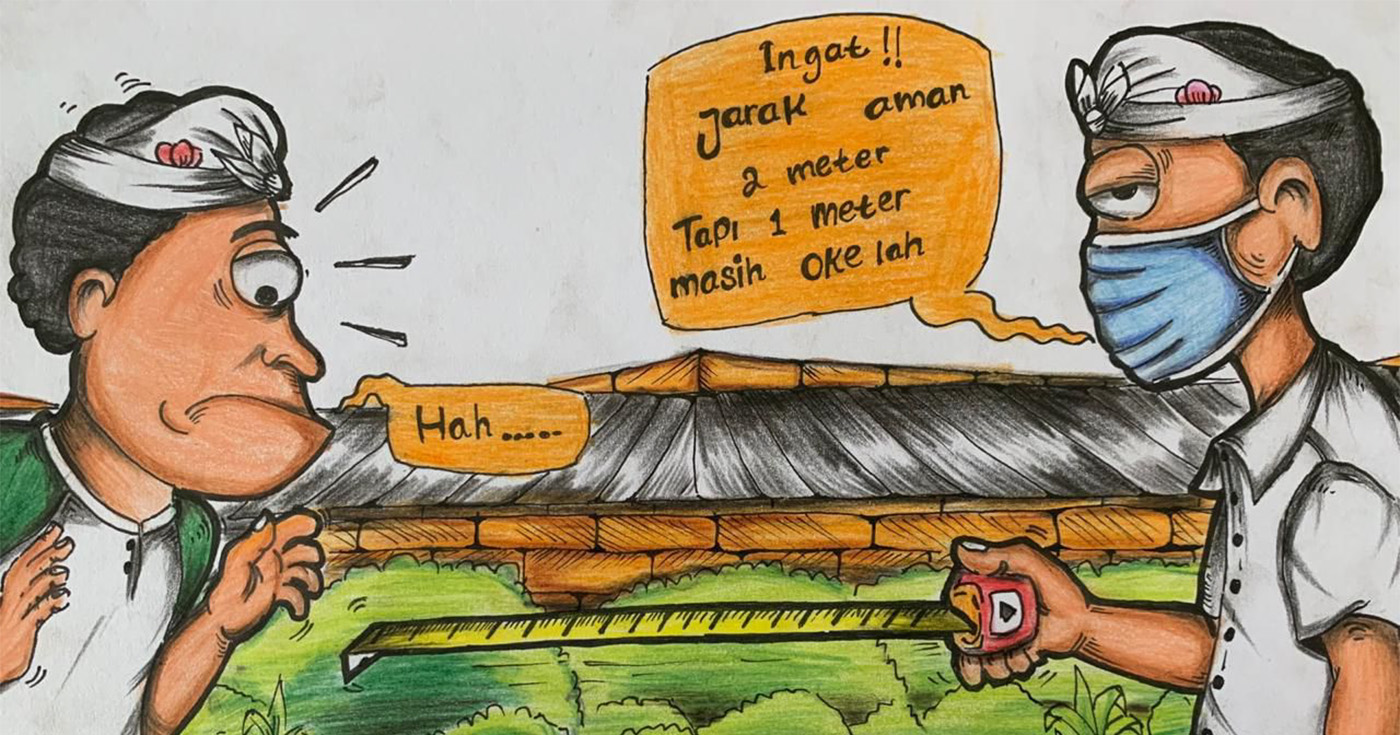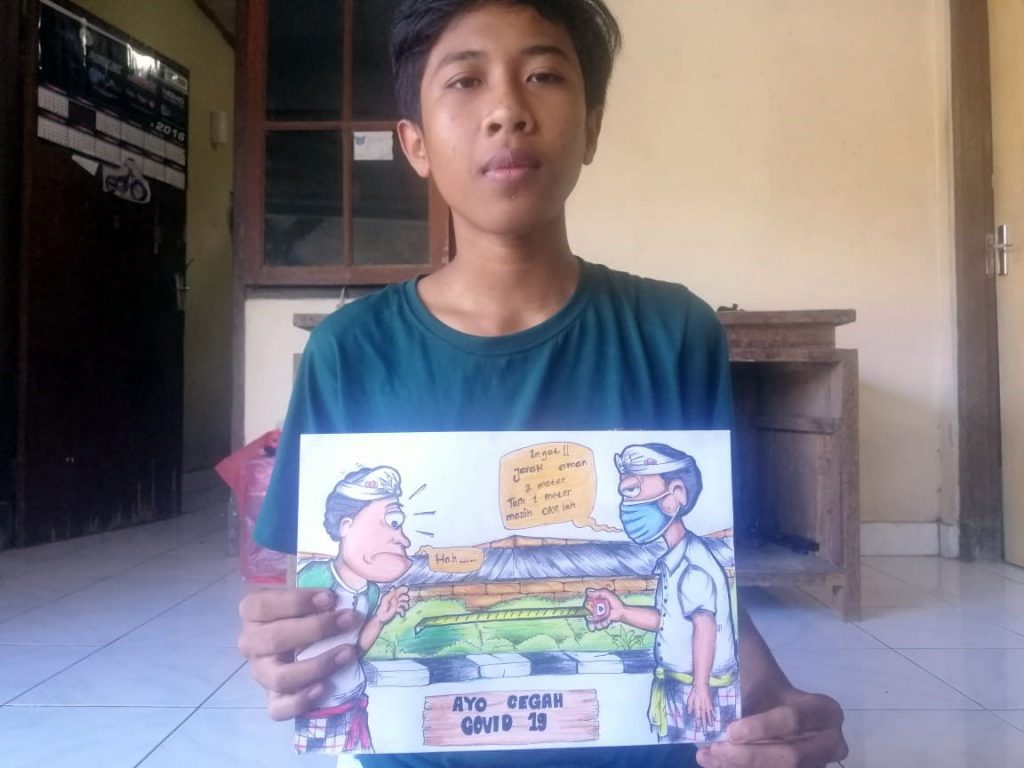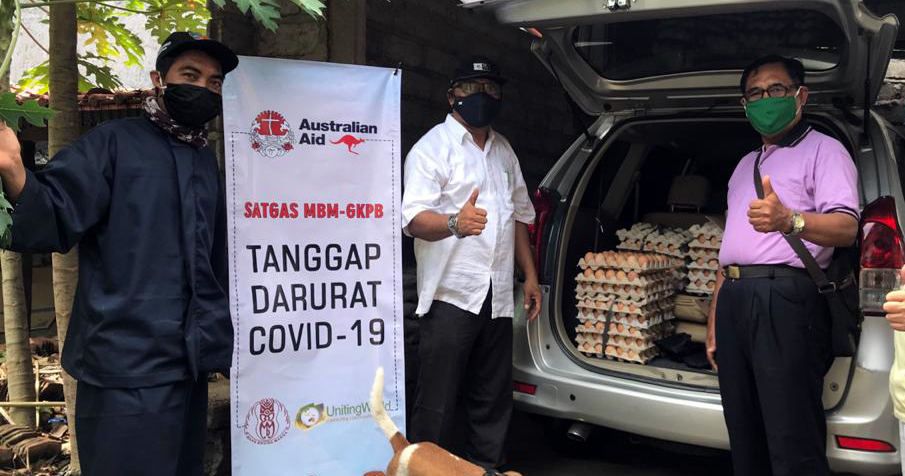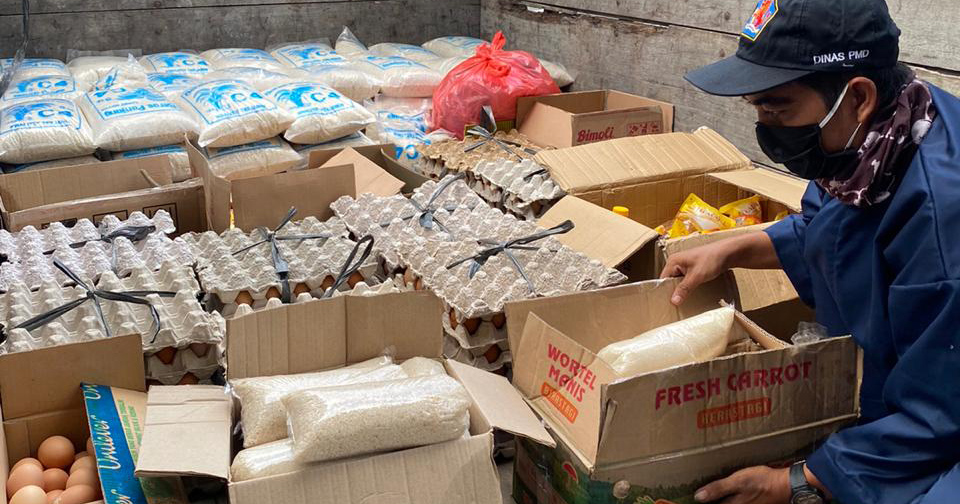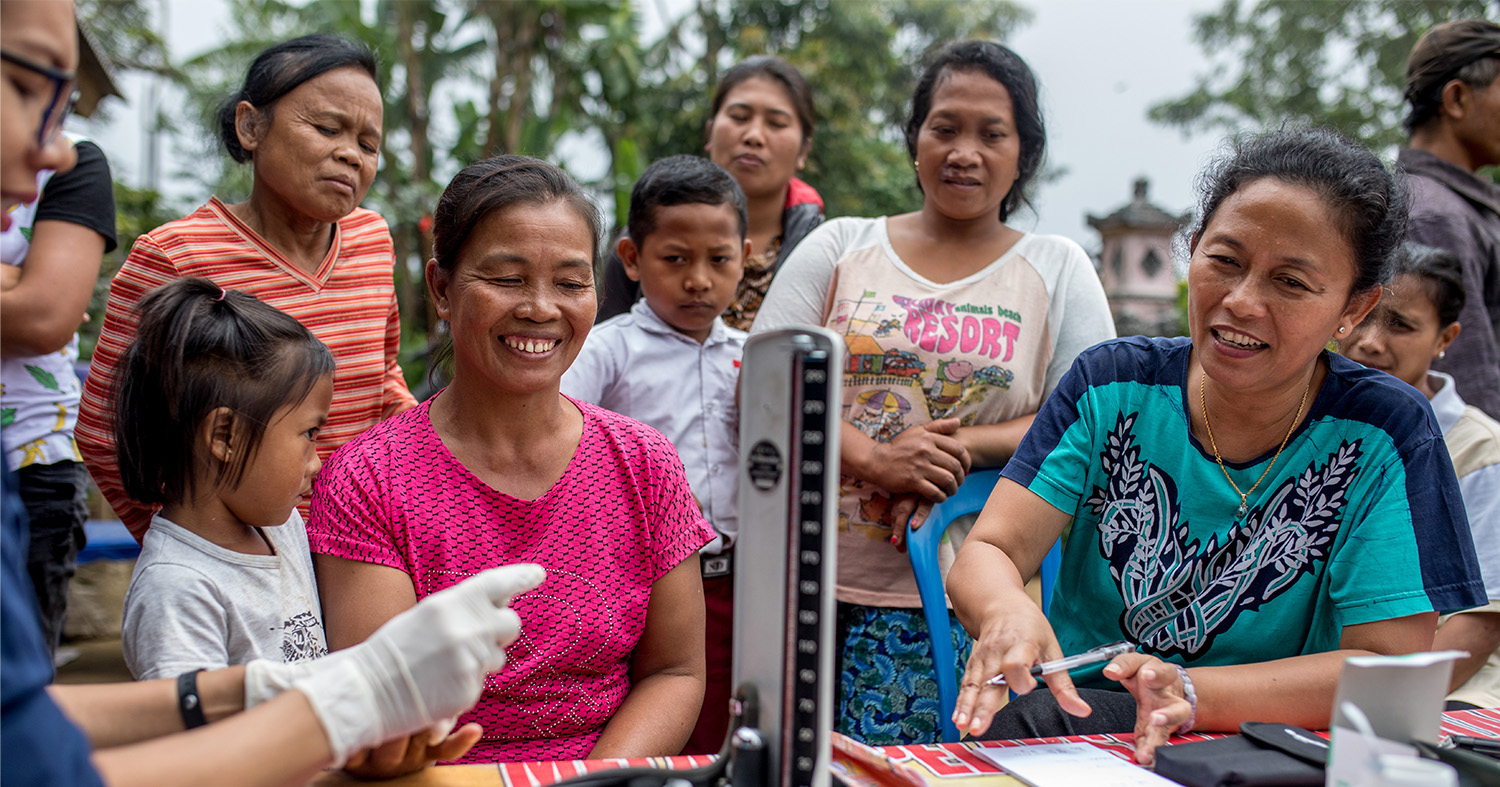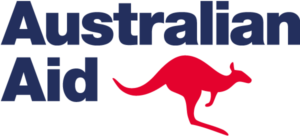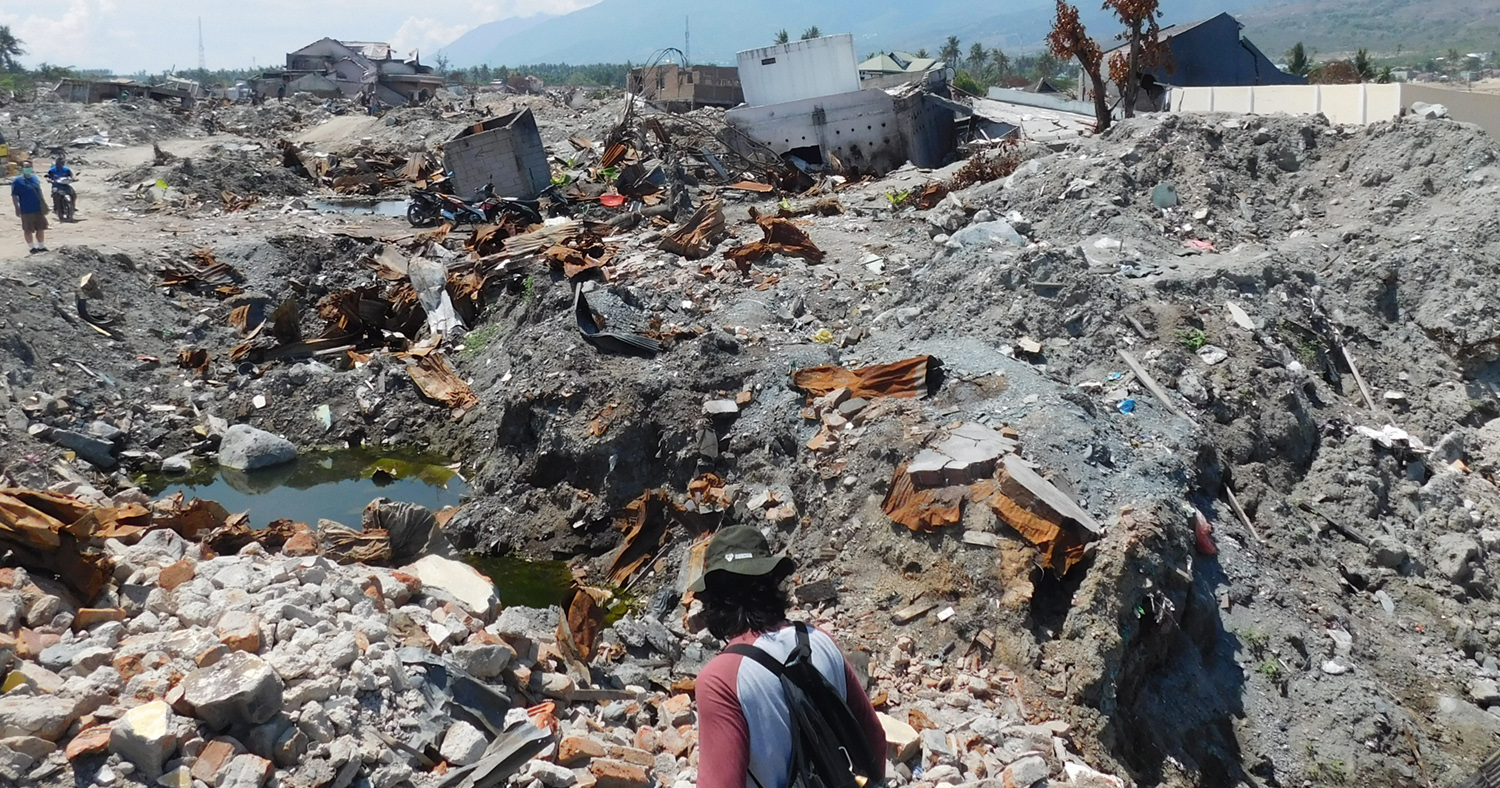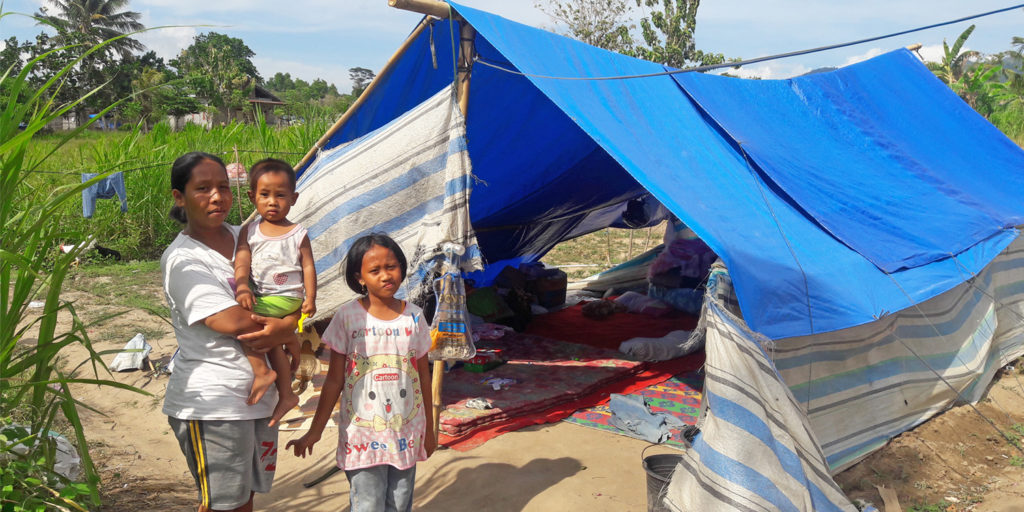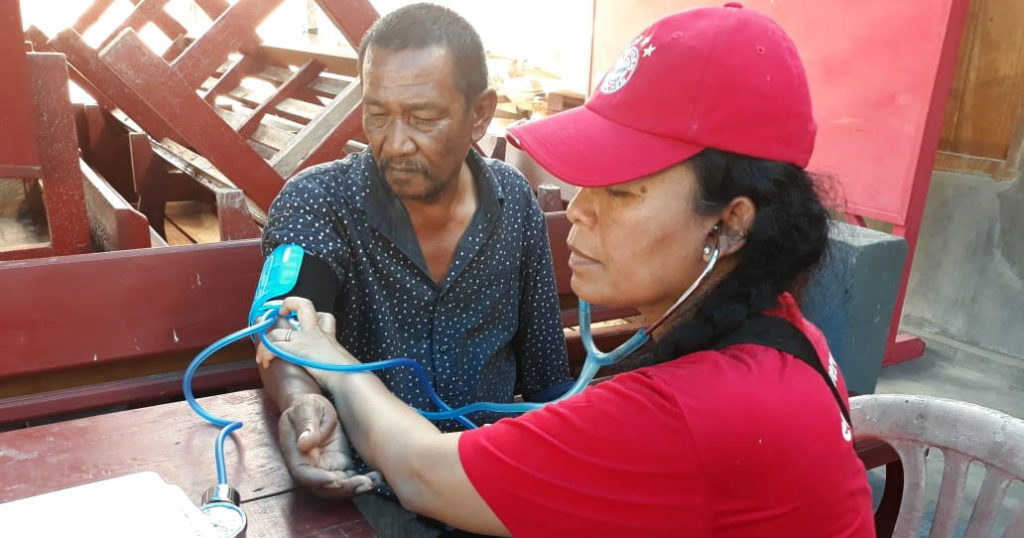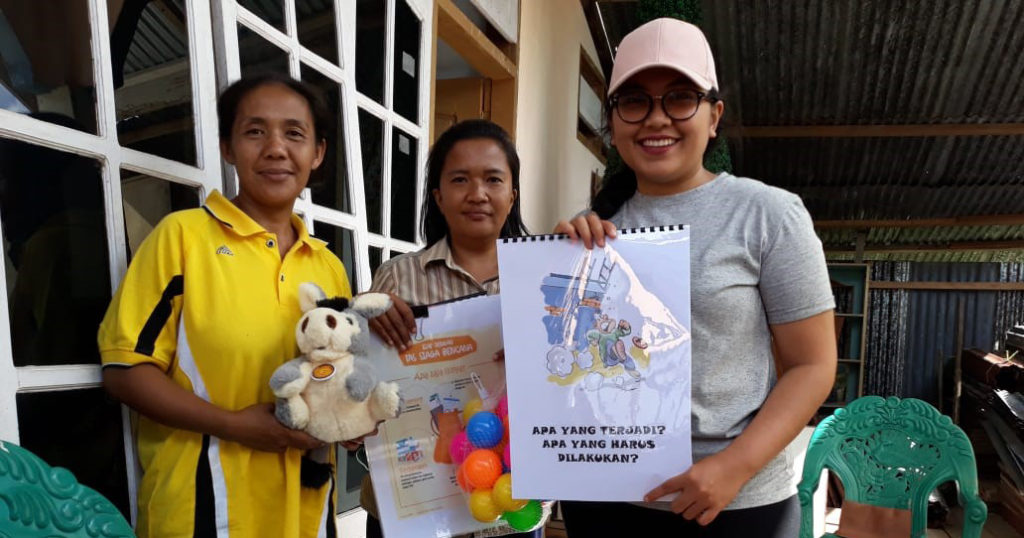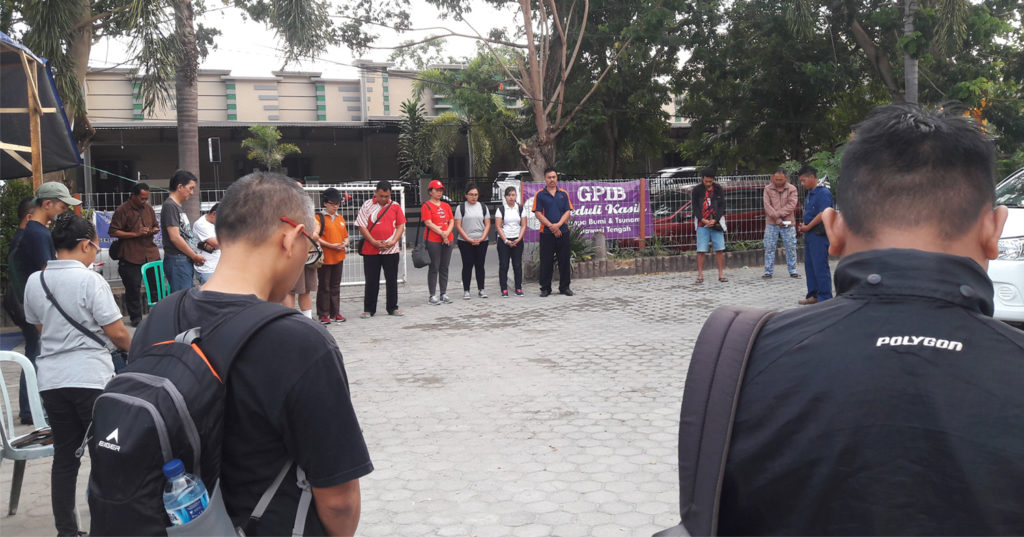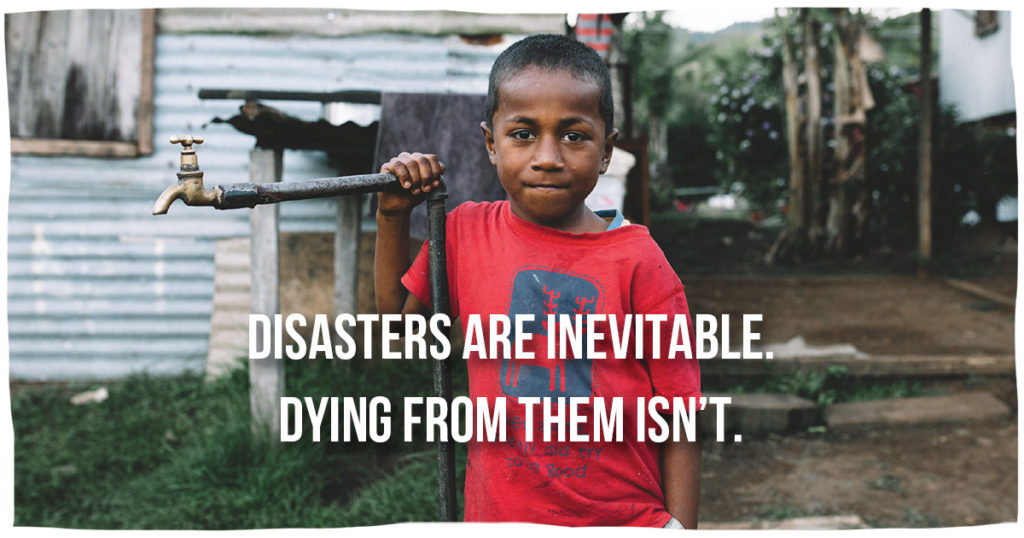Rev Mery Kolimon, Moderator of GMIT (the Christian Evangelical Church in Timor) writes about receiving the vaccine to inspire others, the role of the church and where she sees God at work during a disaster like COVID-19.
The views expressed in this article are those of the author and are not intended as professional medical advice. Please talk to you doctor if you have questions or concerns about the COVID-19 vaccines.
A few weeks ago I was contacted by an official at the Nusa Tengara Timur Provincial Government Bureau to become one of the first public officials to receive the COVID-19 vaccine.
I’d heard that President Jokowi had received the first vaccine, along with a number of public figures in Jakarta. I suspect that involving community leaders as recipients of the first vaccine is the government’s way of convincing the public to take part. Many of them are still caught up in the pros and cons of receiving vaccines.
We have a role to play helping overcome the doubts that still exist in the community about vaccines. I didn’t believe the government would offer a vaccine that might harm its people. But I didn’t want to just believe it. I quickly started looking for information about the safety of the vaccine, as well as thinking through a number of theological considerations that are important too.
Searching for information
I had already been looking for information about the safety of the vaccine. To be honest, I was happy to receive a vaccine shot right at the start of the campaign in Nusa Tenggara Timur province. Vaccination is part of the struggle against COVID-19 which threatens human life. But on the other hand, I also felt a little worried about the side effects of vaccines because I had heard some skewed information about their safety.
The first thing I did was contact friends who could give me good information, and I was grateful to receive their advice immediately. I also received a screening list, with a large number of issues to look into, to help determine whether I was ready to receive the vaccine.
The list explained that people who are pregnant and breastfeeding, have shortness of breath, cough and cold, a history of allergies, blood disorders, heart disease, autoimmune issues, chronic digestive tract, autoimmune hypothyroidism, cancer, blood sugar / diabetes mellitus, or lung diseases (such as asthma and tuberculosis) should not receive vaccines.
To determine whether I could get the vaccine, I immediately consulted a number of doctors. I received tremendous support from a fellow epidemiologist, a doctor friend in Maumere, as well as doctors in Kupang and in Denpasar. I am grateful that I do health checks every six months so that my doctor friends found it easier to analyze my condition. In times like these, check ups are critical, and I want to encourage everyone to do routine check-ups at health facilities.
In addition, I coordinated with my fellow church and ecumenical leaders in Jakarta regarding their views on vaccines. Some of my friends were hesitant, but most of them encouraged me to receive the vaccine. Church leaders in Jakarta, the Communion of Churches in Indonesia (PGI) and a number of friends of the chairmen of the synod council of several churches in the WA group, plus the leadership of the PGI member churches, strongly supported me to receive the vaccine, provided that my health was good based on a consultation with a doctor.
My sister, who is a nurse, gave her considerations based on reports of the implementation of Sinovac vaccinations in Brazil. According to the information she received, of those vaccinated 100% did not experience severe symptoms while 78% experience mild-moderate symptoms. Those things gave me the strength to receive the vaccine. My husband and children also looked for information on the internet to be a basis for our mutual consideration.
Observing the Body’s Reaction to Vaccines
The morning after the vaccination, I woke up with mixed feelings. There was gratitude because I slept quite soundly. There was also a feeling of anxiety: how would my body react to the COVID-19 vaccine? The night before, I went to bed with the realization that my body had been injected with a disabled coronavirus to build immunity against it.
I had heard that after the vaccine, everybody reacts differently. Some people report feeling achy, very drowsy, etc. After the vaccine, I felt sore in my hands. But my ability to concentrate was good. I chaired a meeting with fellows online and took part in an online seminar. The two events were consecutive and I was able to stay focused. To this day my health is good, and I ask for prayers for all who have been vaccinated to stay healthy and be a sign of hope for efforts to overcome the life-threatening power of COVID-19.
Theology in Disaster
We entered the beginning of the year with too much sad news and wounds. Facebook pages are full of sad news that drains inner energy. The young and old are dying every day. The threat is now so close. We all ask: When will this end? In an online seminar we conducted at GMIT regarding service planning during the pandemic, a resource person helped us see the global map of the development of COVID-19. They said this pandemic could last until 2025. This is a pretty tough situation for everyone, including the church.
“Some claim to have God’s vision not to receive vaccines: just pray, they say, don’t take any action.”
With vaccination starting, the debate continues: Is this vaccine useful or will it damage the human body? There has been a lot of news circulating. Some claim to have God’s vision not to receive vaccines: just pray, they say, don’t take any action. I personally see this as a psychological reaction to the threat we feel as humans. But at the same time, it is very important for us to train ourselves to find information from reliable sources. God gave us the intellect to test all news and information, to test all voices that claim to hear God’s voice. The church learns to understand God’s voice (theology) first and foremost from the Bible. Another source of theology is the conscience of every believer, as well as from the revelation of God in history, in culture, science, and in the experience of human life, including the experience of suffering.
The Spirit of God Blows Over the Dry Bones
This year, Ezekiel 37:14 is the text guiding GMIT services during the COVID-19 pandemic.
God brought Ezekiel into the valley of suffering that was full of dry bones that were scattered, the symbol of a life cut off from God and a loss for the future. God told Ezekiel to speak with the bones. God also told him to call the spirits from the four winds into the dry bones that give life.
“God did not allow the Church to avoid disaster.”
God did not allow the Church to avoid disaster. Instead, God led the church into and struggled in the midst of the valley of life’s threats. But the church’s task does not stop in the midst of suffering. The church is called to testify of the living power of God’s Spirit. Ezekiel has the authority to prophesy to the Holy Spirit to bring to life those dry bones.
I see the task of the church at this time is to learn to understand the reality of “dry bones”, namely the threats to life caused by this pandemic.
“We must not lose hope. Instead, the church is called upon to proclaim and work the good news in the midst of disaster”
We must open our eyes to hear and study the findings of scientists about the development of this virus around the world. We also need to be realistic about the dangers and threats we face. But we must not lose hope. Instead, the church is called upon to proclaim and work the good news in the midst of disaster situations. Within this framework, vaccination by the government needs to be positively accepted as the church’s involvement in God’s work for the restoration of human life. At the same time we need to remain critical of practices that can injure humanity where people resist vaccination or it is unavailable.
I believe that in all situations, our God is Immanuel; He is with us. The Trinity God with us is not passive, but God is with us actively. He acted for the salvation of the world He created. The power of sin destroys human life and the universe, but God does not stop helping humans and the fragile world. I believe that God has given humans the power to work together to fight the power of pain and death amidst the current threat of the COVID-19 pandemic. The COVID-19 vaccine is part of God’s gift for human minds to process knowledge into a safety tool. Receiving vaccines is part of a commitment to caring for life.
Rev Mery Kolimon is the Moderator of our partner GMIT (Christian Evangelical Church in Timor). Read more about our projects in West Timor.

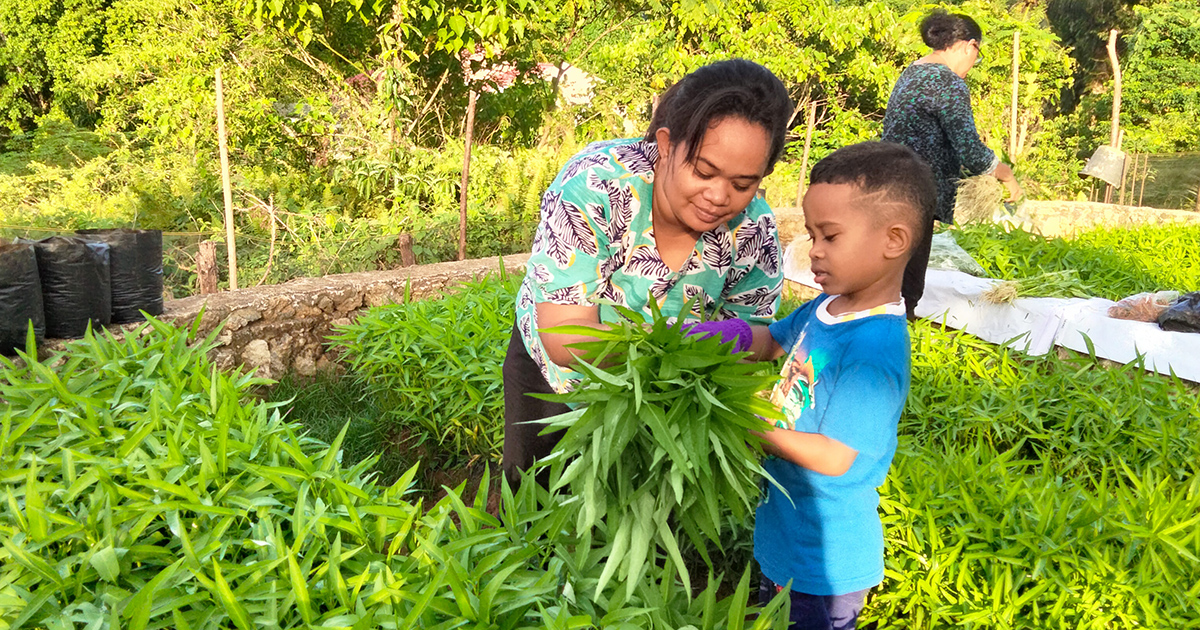
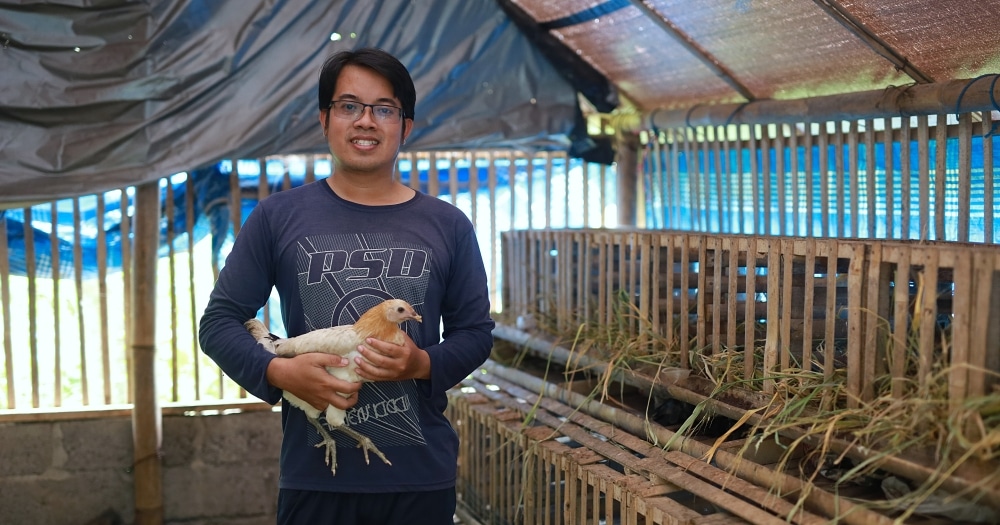
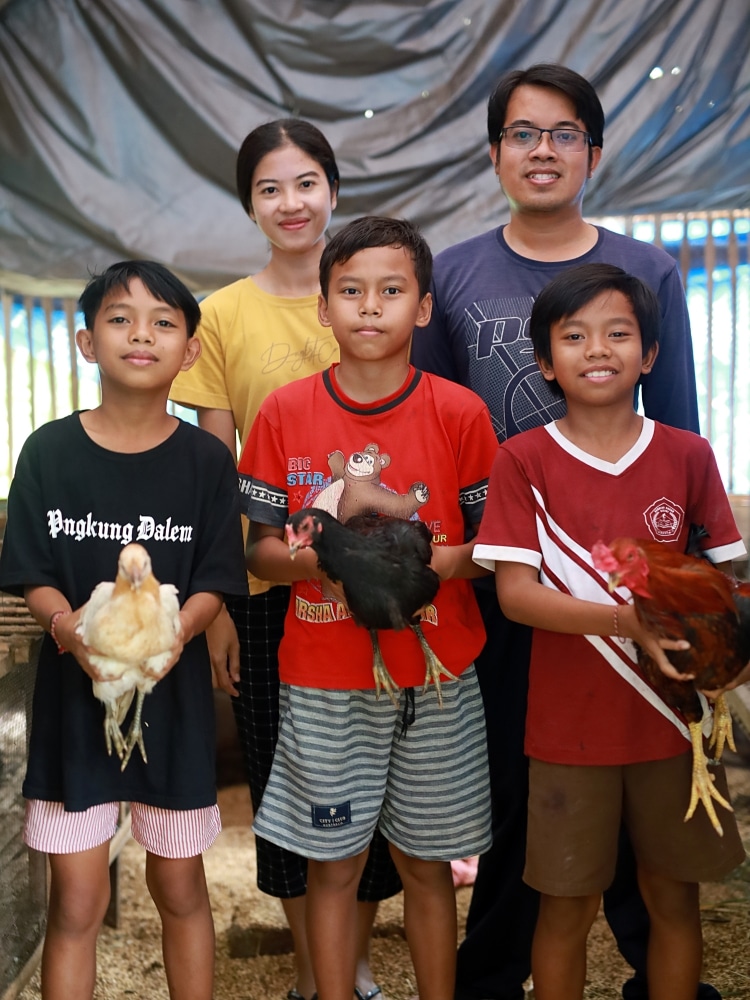
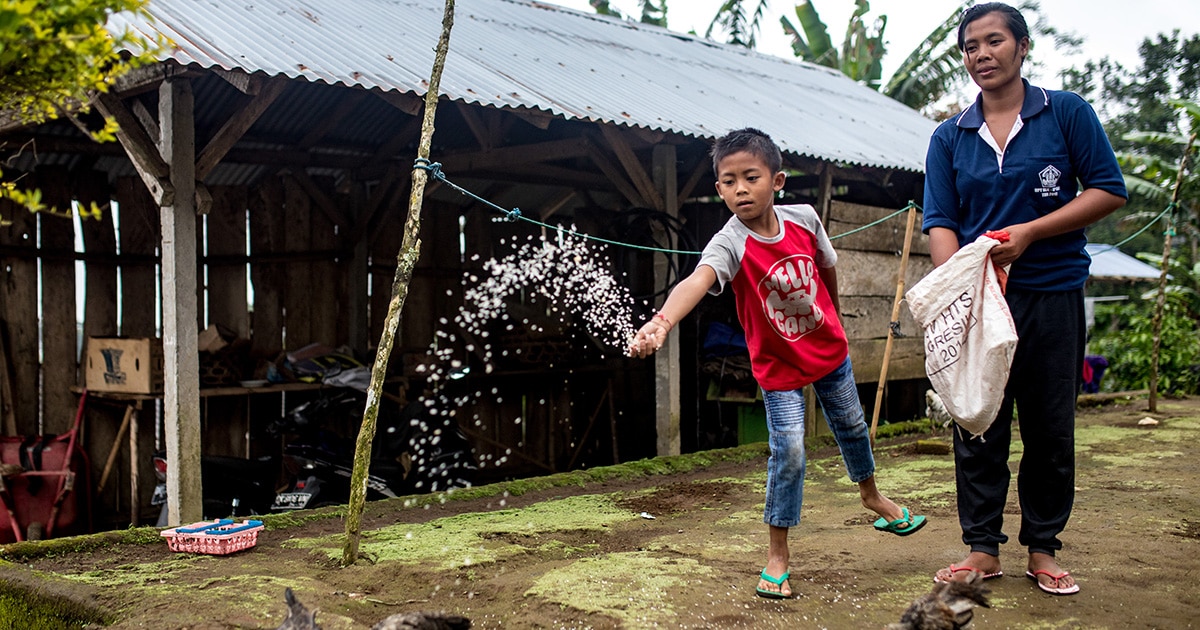
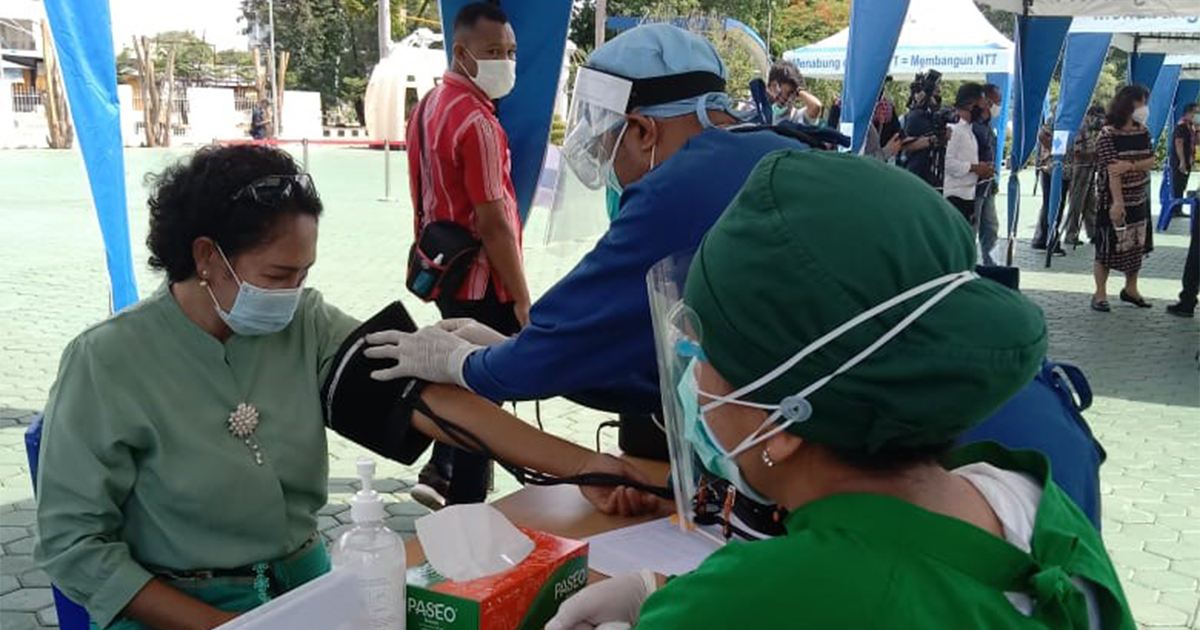
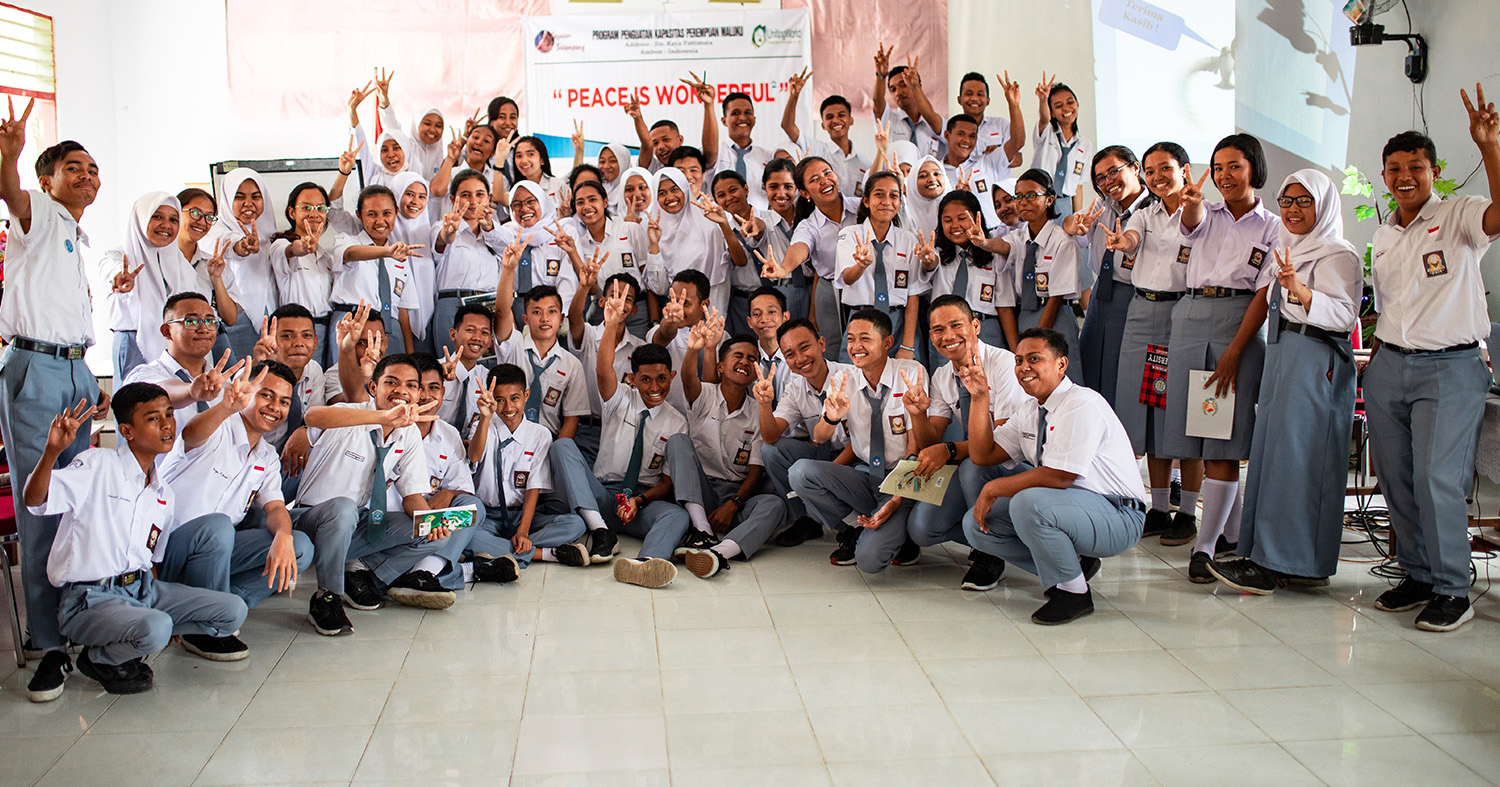
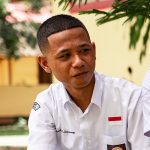 Brooklyn Distephano blogs on life as a student in Ambon during COVID-19. Brooklyn is a 17-year-old Ambonese high school student and UnitingWorld Peace Workshop participant.
Brooklyn Distephano blogs on life as a student in Ambon during COVID-19. Brooklyn is a 17-year-old Ambonese high school student and UnitingWorld Peace Workshop participant.